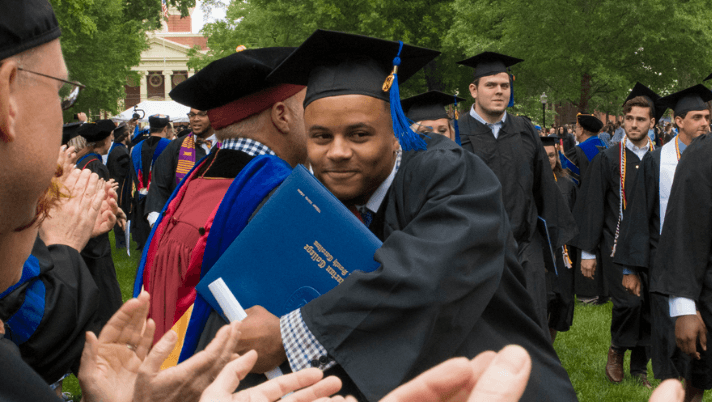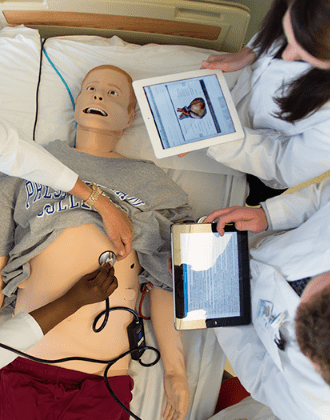- The median pay for veterinarians was $95,460 per year in 2019.
- Graduate and professional schools often tell us that PC graduates are among the most well prepared students they have.
- There isn’t a pre-vet major. You can major in anything you’d like, from art to sociology.
- Employment of veterinarians is expected to grow 18% from 2018 to 2028.
What You’ll Study as a Pre-Vet Student
There isn’t a pre-vet major. You can major in anything you’d like, from art to sociology. But if you want to go to a vet school, you’ll need to fulfill the vet school requirements of the specific school you want to apply to.
Your advisor at PC will help you select your courses. As a pre-vet student, you’ll take science courses that most veterinary schools of medicine require.
During the first semester of your freshman year, it’s recommended that you take Biology 1150 and lab as well as Chemistry 101 and lab. Taking these courses together helps you stay on track for graduate school prerequisites and prepare for the MCAT or GRE. Plus, Biology 1151 and Chemistry 102 are required before you can take many of the upper-level courses needed for a health science track.
Eight hours each of physics and organic chemistry and three to four hours of biochemistry are also recommended for pre-vet students. Vet schools often require at least eight hours of advanced biology. At PC, you’ll take four hours of microbiology. You can choose a course in anatomy, cell biology, genetics, or physiology to meet the other advanced biology requirement.
Six hours of English classes will help you sharpen the communication skills you’ll need as a veterinarian. Again, your advisor will help you make sure you select courses required by the vet school you want to apply to.
MORE INFORMATION
If you have other questions about the program, please contact email, Dr. Austin Shull, at ayshull@presby.edu or call 1-800-476-7272.
Careers for Veterinarians
Now is a good time to pursue becoming a veterinarian, according to the Bureau of Labor Statistics (BLS). Employment of veterinarians is expected to grow 18% from 2018 to 2028. This is much faster than the average for all occupations.
The BLS also reports that the median pay for veterinarians was $95,460 per year in 2019.
You already know that veterinarians love animals. You may not know there are other vets besides companion animal veterinarians who treat dogs, cats, and other pets. Food animal veterinarians treat sick and hurt farm animals. And food safety and inspection veterinarians inspect and treat livestock and animal products for major animal diseases, according to the BLS.
You’ll become more familiar with the types of veterinarians as you pursue your pre-vet studies.

CAREER PROFESSIONS
- List Items Here
- List Items Here
- List Items Here
- List Items Here
- List Items Here
- List Items Here
- List Items Here
- List Items Here
- List Items Here
- List Items Here




